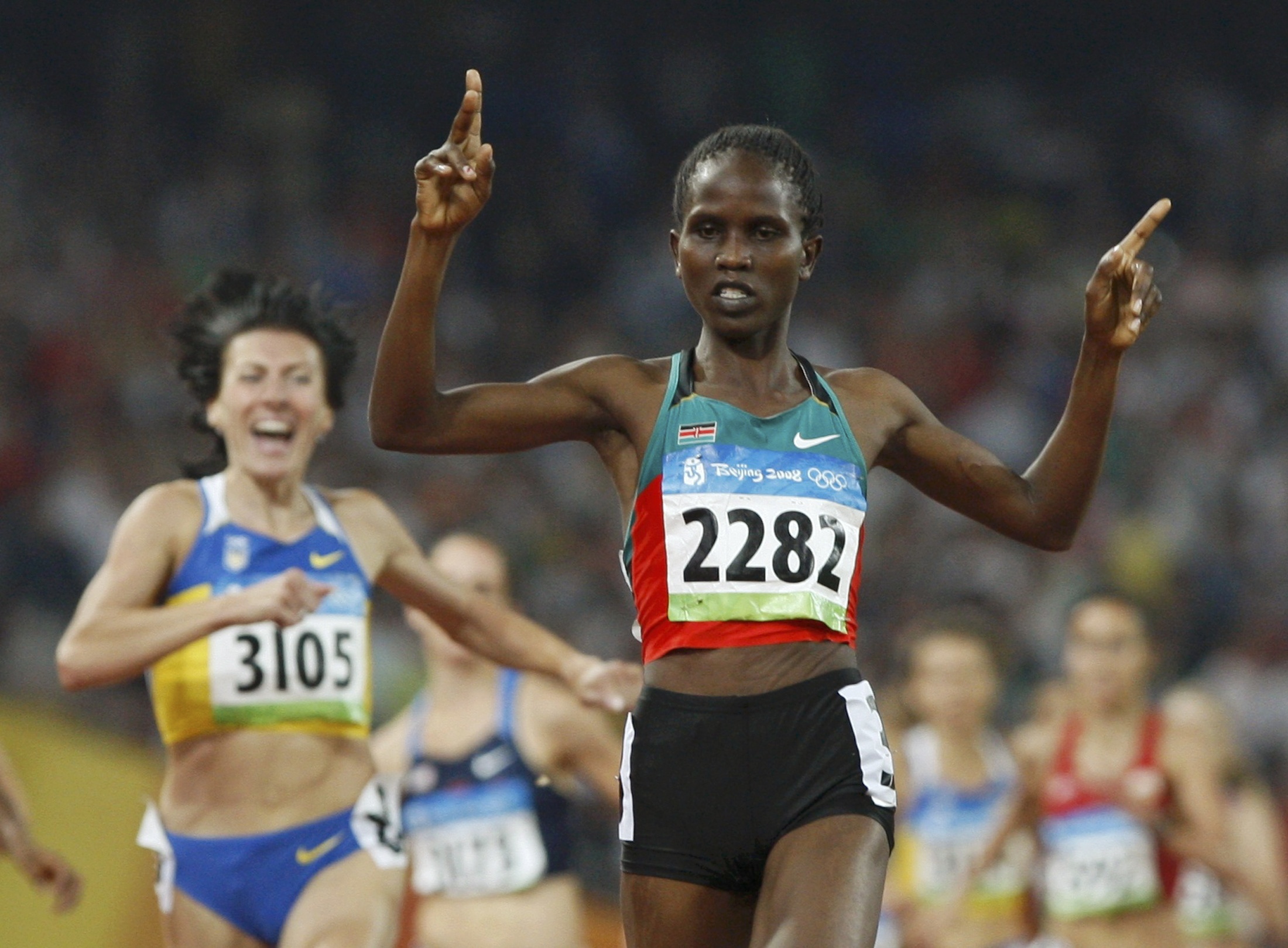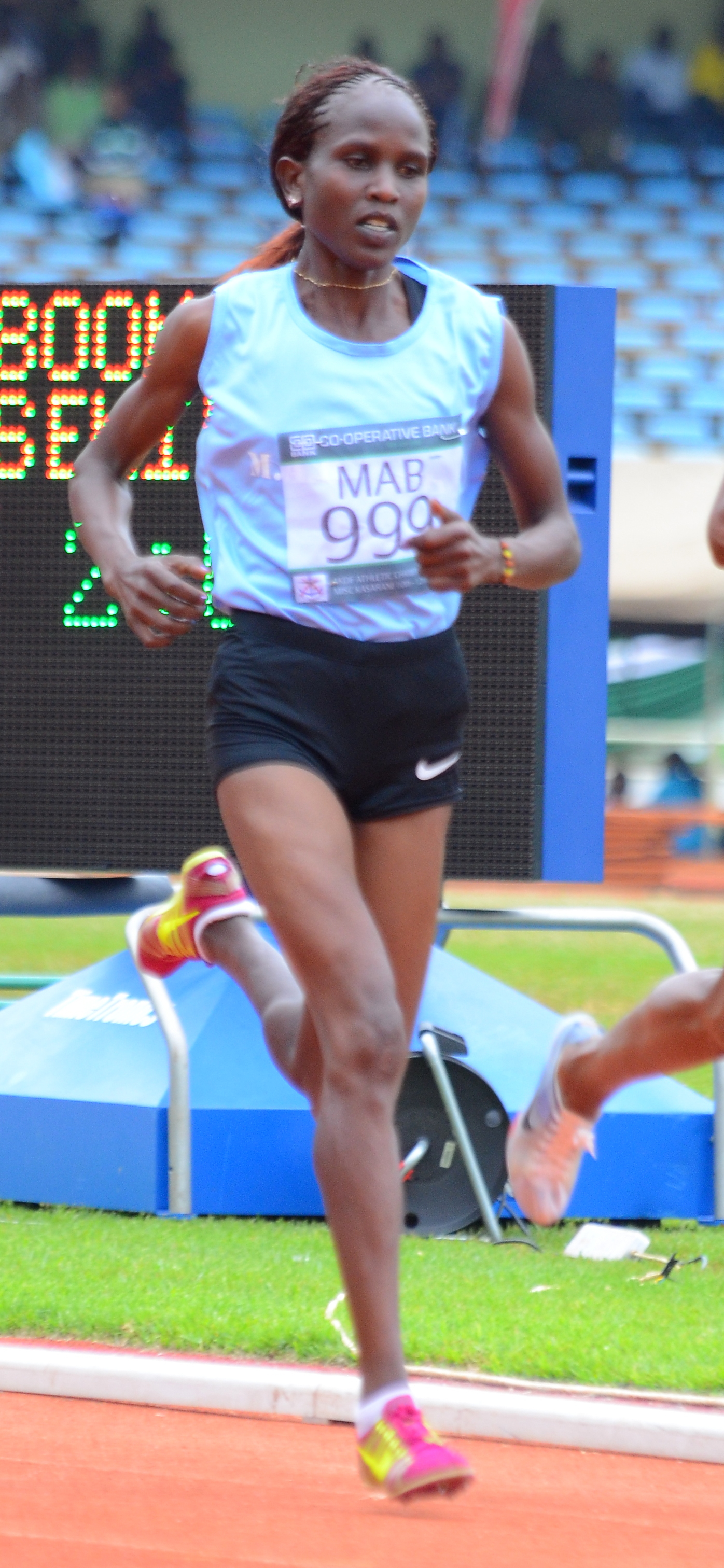

After a glittering track career adorned with medals and accolades, 2008 Olympic 1500m gold medalist Nancy Jebet Lang’at has embarked on a mission to fight doping.
Now an education officer with the Anti-Doping Agency of Kenya (ADAK), Lang’at is using her legacy to guide the next generation toward clean sport.
Lang’at etched her name in history at the Beijing 2008 Olympics, becoming the first Kenyan woman to win gold in the 1500m.
In a tactical masterpiece, she stormed to victory in 4:00.23, fending off Ukraine’s Irina Lishchinska (4:01.63) and Nataliya Tobias (4:01.78) to claim the ultimate prize.
That triumph made her only the second Kenyan woman to win Olympic gold, following Pamela Jelimo’s 800m success at the same Games.
Her victory shattered barriers for Kenyan women in middle-distance running, paving the way for future stars like three-time Olympic 1500m champion Faith Kipyegon to dominate the global stage.
Now, Lang’at hopes her journey will inspire young athletes to run clean and uphold integrity in a sport increasingly tainted by doping.
Kenya remains under Category A—the highest doping risk level—according to the World Anti-Doping Agency (WADA).
A 2018 report titled “Doping in Kenya” revealed that 138 Kenyan athletes had tested positive for banned substances between 2004 and 2018.
Lang’at, who joined ADAK two years ago, sees this as a personal battle aiming to educate athletes on the importance of running clean.
“It pains me to see our country ranked as a highrisk doping nation,” she says.
“I started my career at a young age and ran clean to the Olympics. I thought, why not be a role model and mentor young athletes to succeed the right way,” Lang’at says.
As a former elite runner, she believes she has an advantage in influencing athletes.
“The athletes listen to me more because I am a former athlete and I have been where they are. They see me as an example,” she stated. Lang’at says the experience so far has been great.
“It has been a good experience so far. We have been going around camps meeting athletes to educate them on the dangers of doping and using shortcuts,” Lang’at said.
Her work involves visiting training camps across the country, conducting sensitisation workshops and educating athletes on the dangers of performance-enhancing drugs.
“We have been doing a lot of sensitisation and workshops across the country to help steer the athletes in the right path.” Beyond mentoring, her new role has helped her grow personally.
“I used to be a quiet person, but this job has made me bolder. I can now stand before crowds and confidently educate them about clean sport,” she shares.
The experience has been a learning curve for her.
“I have been learning so much from everyone around me, including my mentors and other top personalities I work with. It is truly a humbling experience.”
Her message to athletes is simple: “Integrity first.”
“Athletes should avoid using any enhancing substances and stay clean, maintain integrity and just copy examples from veteran athletes like myself who have been able to run clean throughout their careers and have achieved so much,” Lang’at said.
Born on August 22, 1981, Lang’at’s athletics journey started in 1995 at Kapleting Primary School, where she first competed in the 400m sprint.
“I started with the 400m sprint while in primary school. It was quite fun at the time and it is that event that sparked my interest in athletics,” she reveals.
That same year, she earned a bronze medal at the National Games in Nairobi, running barefoot on the tartan track at Nyayo Stadium.
“I represented my school in the nationals at Nyayo Stadium and finished third. I ran the race barefoot. It was so exciting because this was my very second visit to Nairobi and also being able to run on the tartan track at Nyayo,” she said.
Her potential was undeniable. She even made Kenya’s World Cross Country team, only to be dropped due to her young age.
“I had made the team for the World Cross Country Championships but unfortunately I was dropped because I was very young,” she noted.
In high school at Kapkenda, her teachers encouraged her to move up to 800m, believing her endurance could take her far “They told me that I should try out the 800m because I was good at the 400m and that motivated me to switch.”
Her first breakthrough came on August 23, 1996, when she made her international debut at the 1996 World Junior Championships in Sydney, winning bronze in the 800m (2:03.21).
A year later, she built on that success, striking gold at the Af- rican Junior Championships in Ibadan, Nigeria.
In 1998, she made her second appearance at the World Juniors claiming silver with a time of 2:05.43.
She reckons that her performance was due to juggling school and training.
“I was at a crucial point in school and so balancing training and school work was somewhat a challenge but I was pleased with the results,” Lang’at noted.
Her persistence paid off in 2000 when she won gold at the World Junior Championships in Chile (2:01.51), cementing her status as a future star.
“Winning the World Junior title was due to my consistency after having won bronze and silver in the previous editions.”
After high school, Lang’at competed in a few races before taking a brief break for maternity leave in 2002 and resumed in 2004. Under coach David Leting, she transitioned to 1500m, setting the stage for her maiden Olympic appearance in Athens in 2004.
“During the Olympics, I had family issues which made my performance drop. It drained me completely. I had just gone there to compete but was excited to have been an Olympian.”
The struggles continued at the 2005 World Championships in Helsinki, where she was eliminated in the first round—just weeks after discovering she was pregnant again.
“I found out that I was a few weeks pregnant before going to Helsinki. With consultations with the team doctors, I was given the green light to compete but mentally, I was not in the competitive mood as I was thinking about the pregnancy.” Another maternity break followed before she joined the Kenya Defence Forces (KDF) in 2007.
Training in Namibia due to post-election violence in Kenya, she focused on her second Olympic appearance in Beijing.
“After passing out, we switched our training ground to Namibia because we were coming from the post-election violence and it was not very conducive at the time. We wanted to put our focus on the coming 2008 Olympics,” she says.
Lang’at barely made the Kenyan team for Beijing after finishing third at the national trials, nursing a knee injury.
“During the trials, I was third because I ran with a knee injury. Only the top two were guaranteed spots. The third athlete had to be selected by a panel. I was lucky to get picked, and I saw it as my golden opportunity.”
Heading to China, she doubted herself but it was her coach Claudio Berardelli who gave her a crucial pep talk.
“My coach urged me on and told me I could do it so I decided to heed his instructions. I did not know I could make it until the semis. In the finals, I was going for the podium, I did not expect to win gold.”
Lang’at would etch her name into Kenya’s and the global history books as the first female athlete from the country to claim gold.
“I was the only Kenyan in the final and not many people believed that I would win since the 1500m was mostly dominated by the European nations.”
“I had mixed reactions after crossing the finish line. It took me some time before I realized what had happened…if you go back to the video clips from that Olympics you can see just how shocked I was,” she noted.
Lang’at later went on to claim numerous accolades including double gold from the 2010 Delhi Commonwealth Games in the 800m and 1500m. Unfortunately, her career was plagued by a recurring knee injury, forcing her into early retirement.
“I really wanted to progress in my career by running the marathon and achieving so much more but I do not regret it. This was God’s will and I made peace with it because everything happens for a reason.”
“I had already achieved so much because looking back at some of the athletes we started with, some did not make it far but I was blessed to have gone this far in my career,” she noted.
Widely regarded as the god- m o t h e r of Kenyan 1500m running, she takes pride in seeing Faith Kipy- e g o n carry the torch.
“I passed the torch to Faith and she is so good a t the moment in the event. She has dominated it globally and brought so much glory to Kenya. We also have a lot of other promising girls like Nelly Chepchirchir and Susan Ejore.”
She believes Kenya’s dominance can continue with better talent identification.
“If we maintain this way, we will surely continue dominating the World. What we need now is to have robust talent identification so the well cannot dry,” she shares.
Beyond her ADAK role, Lang’at also coaches middle-distance runners at KDF and takes time to mentor young girls in training camps.
“I take time to go to camps and mentor the young girls. Some don’t even know me because they have grown up knowing Faith but I tell them that I have been there and encourage them to do their best on the track,” she noted











